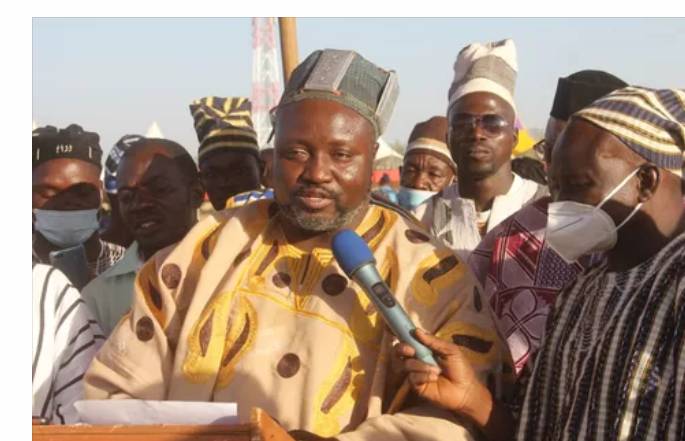Kusaug Traditional Council Lifts NPP Ban: Authorities Ease Political Restrictions Following Key Interventions
In a significant development in the Kusaug Region, the Kusaug Traditional Council has lifted the ban on activities of the New Patriotic Party (NPP), ending a longstanding restriction that had intensified debates around political inclusivity and security in the area. The decision, announced on Wednesday, follows months of community dialogue, government consultations, and interventions by influential stakeholders within and beyond the Kusaug Region.
Background of the Ban
The initial ban, imposed in response to escalating violence and political tensions, was seen by many as a necessary measure to curb conflict in a region that has experienced recurring clashes. In recent years, the Kusaug Region, especially the Bawku area, has grappled with a complex mix of political and ethnic tensions that has occasionally erupted into violence. The Council implemented the ban on NPP activities as a step to reduce potential triggers for further unrest. Although the move was aimed at preserving stability, it quickly drew national attention, prompting reactions from political circles, advocacy groups, and government officials alike.
A Complex Dialogue
According to sources close to the Kusaug Traditional Council, the decision to lift the ban came after considerable pressure from political leaders and civil society groups, who urged the Council to promote a more inclusive political environment. During discussions, representatives from the NPP, National Democratic Congress (NDC), and other political entities were brought into a consultative process. Emphasis was placed on establishing mechanisms to safeguard peace while allowing political activities to resume without risking the stability of the region.
The Kusaug Council also welcomed government representatives, including officials from the Ministry of Interior, who expressed support for strategies that could address security concerns without imposing long-term restrictions on political parties. High-profile figures in the traditional hierarchy, such as the Chief of Bawku, Bawku Naba Asigri Abugrago Azoka II, were instrumental in facilitating this dialogue, emphasizing the importance of unity in addressing both political and security challenges.
Remaining Questions on Security
While the lifting of the ban signals a positive step towards political inclusivity, concerns remain about the broader security situation in Bawku and its surrounding areas. The recent rise in violent incidents has drawn criticism from residents who feel that government interventions have not fully addressed the root causes of instability. Some community members worry that, without strong government backing and an effective security strategy, the resumption of political activities may inadvertently fuel tensions, especially as the country heads toward the 2024 general elections.
Security analysts have called for a concerted effort by government and local authorities to strengthen peace-building initiatives, promote dialogue among all ethnic groups, and ensure an effective response to any potential outbreak of violence. The Regional Security Council (REGSEC) has also been active in overseeing security operations in Bawku, yet locals continue to press for a greater government presence to foster lasting peace.
A New Political Landscape
The lifting of the ban could reshape the political landscape in the Kusaug Region, allowing NPP supporters and leaders to engage more openly in campaigning and grassroots mobilization. Political experts speculate that the decision may influence voter turnout and electoral dynamics in Bawku, especially as the NPP seeks to make inroads in a region where the NDC has traditionally enjoyed substantial support.
The Kusaug Traditional Council's action serves as a reminder of the vital role traditional leaders play in balancing political interests and community welfare. However, the Council’s decision also underscores the need for a proactive government response to ensure that the gains of peace are not lost to renewed tensions. As the countdown to Election 2024 continues, all eyes are on the Kusaug Region to see how local authorities and political leaders navigate this complex terrain.
Moving Forward
The Kusaug Traditional Council has reiterated its commitment to working alongside government agencies, political parties, and community groups to promote a peaceful and democratic environment in the region. Residents are hopeful that the new political freedom will bring a sense of empowerment to the people, enabling them to participate more fully in the national discourse.
Despite the uncertainty, the Council’s decision represents an important milestone for political expression and peace efforts in the Kusaug Region. However, it also presents a challenge: as political activities resume, all parties involved must strive to maintain a balance between political freedom and the region's fragile peace.




No comments yet
Be the first to share your thoughts!